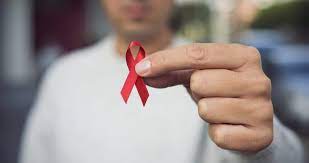
By Charles Muchoki | Africa Guardian
The AIDS Healthcare Foundation (AHF) is calling on African leaders to advocate for a fairer approach to global health security, emphasizing the need for an inclusive pandemic response agreement that benefits all countries, especially those in the Global South. This call is part of AHF’s Save Our Society (SOS) campaign ahead of the next World Health Organization (WHO) Pandemic Agreement negotiations scheduled for November 4-15, 2024.
The upcoming pandemic agreement aims to establish fair protocols for responding to future health crises, ensuring that access to vaccines, diagnostics, and other essential resources is equitable worldwide. In a statement released Wednesday, AHF highlighted that COVID-19 exposed stark inequalities, with 85% of African nations struggling to vaccinate their populations as wealthier countries stockpiled vaccines. The foundation urged that these inequities must be addressed in the forthcoming negotiations to avoid a repeat in future pandemics.
AHF Nigeria’s Country Programme Director, Dr. Echey Ijezie, stressed the importance of centering equity in the Pandemic Agreement to ensure Africa’s timely access to critical health tools. He advocated for establishing regional manufacturing hubs and securing binding commitments on technology transfer across Africa, stating, “The pandemic has shown us that the health of one nation affects the health of all. Africans cannot wait for handouts in times of crisis, as seen during COVID-19 and in the current Mpox outbreak. We must demand the tools, knowledge, and capacity to protect ourselves, leaving no country behind.”
The foundation argued that African countries need to build self-reliance by acquiring the skills and resources to manufacture vaccines and essential health products locally, reducing dependency on external suppliers. AHF further underscored the need for sustainable financing to enhance Africa’s pandemic preparedness and health infrastructure.
“Africa’s leaders have a critical opportunity to shape the WHO Pandemic Agreement,” the statement read. “By standing firm on issues of equity, regional production, technology transfer, and sustainable financing, African nations can secure a more resilient future for the continent. The time to act is now.”
AHF is pushing for specific, enforceable measures to support vaccine, diagnostic, and therapeutic production within the Global South. This requires a binding framework for knowledge and technology transfer, as well as sustainable, long-term funding, as outlined in Articles 9, 10, and 11 of the draft agreement.
The foundation called for enforceable provisions allowing low- and middle-income countries (LMICs) similar flexibilities to those used by high-income nations, like the United States, to implement non-voluntary measures in public health emergencies. Moreover, it stressed that high-income countries should make binding financial commitments to support pandemic response and preparedness in LMICs, pointing out that voluntary donations will not suffice.
AHF concluded that an effective global health governance model must include civil society and non-state actors in decision-making to boost accountability and legitimacy. This inclusive approach would help build a more equitable and effective system, strengthening global health security to better prevent, prepare for, and respond to health threats worldwide.
___
